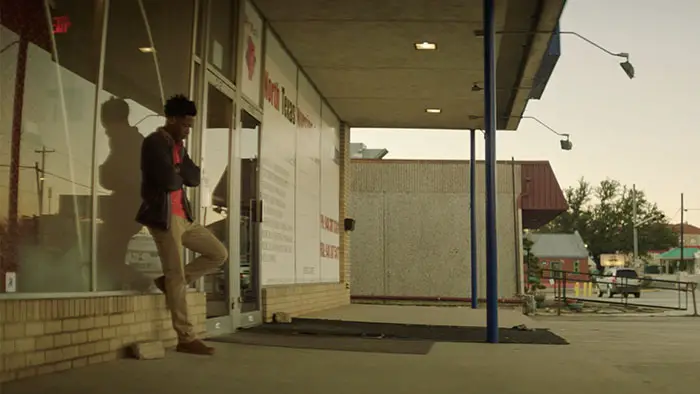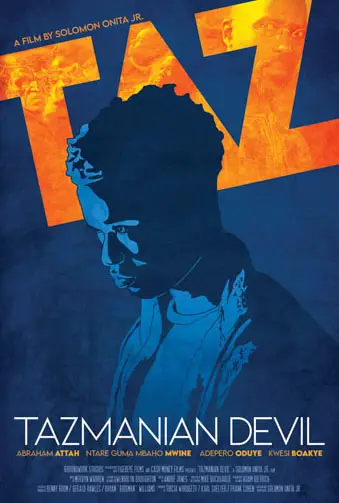
Humans have always tended to dedicate themselves wholly to a cause – be it religion, a fraternity, or a cult – with the hope of achieving salvation, giving meaning to life, or never feeling alone. Filmmaker Solomon Onita Jr.’s feature-length debut Tazmanian Devil purports to dissect said dedication but bites off way more than it can chew. The film contains moments of raw power yet seems confused, arriving at a conclusion that glamorizes the very thing it purports to indict. As a result, it’s halfway there, both as a character study and sociological treatise.
Raised in Lagos, Nigeria, 4.0 GPA student Dayo (Abraham Attah) gets a scholarship to a university in Arlington, Texas. He moves in with his father Julius (Ntare Guma Mbaho Mwine), a pastor, leaving his mother in Africa. The wildly devout Julius has his son’s entire life trajectory planned out: play the keyboard at his local church, ace all classes, become a minister. However, Dayo has other plans: he desperately wants to assimilate, and the only way to do so seems to be by joining the boisterous fraternity that refers to itself as TAZ. What does TAZ stand for? Tools and As*holes in a Zoo, if you ask me.

“…Dayo gets a scholarship to a university…[joins] the boisterous fraternity that refers to itself as TAZ.”
The writer/director delves deep into the all-male, seemingly welcoming and fun, but actually antagonistic, toxic milieu of the frat. “Those folks in the garage with you? They’ll be with you for a lifetime,” Dayo is told. That notion, along with an infatuation with sorority girl Nicole (Billie D. Merritt), propels him forward. He forms a real bond with his fellow pledges, and together they go through the torturous, imbecilic, and disturbing hazing process: getting knocked out, viciously beaten with a paddle, lashed, humiliated in front of the opposite sex, and so on.
Despite the torture, Dayo begins to feel like he’s a part of a community. He and Nicole hit it off. Just when things seem more-or-less rosy, the domineering Julius finds out about the “cult” and proceeds to lash his already-bruised son before threatening to send him back to his mother in Lagos. Julius is also torn between his family and the church, as multiple, needless flashbacks reveal. “Just trust God,” he tells his wife, “he’s our only savior.” Later he claims, “Everything I have goes to you.”

"…glamorizes the very thing it purports to indict."


